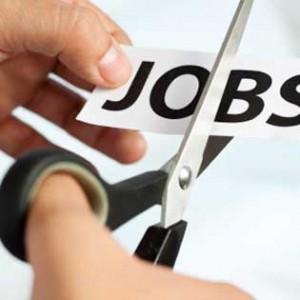News
DSM to shed 900+ jobs
26 Aug 2015DSM has announced adjustments to its organisational and operating model. Following recent portfolio changes, the company said that these adjustments aim to create a more agile, focused and cost efficient organisation, with a stronger business and market focus and globally leveraged support functions. These changes will result in structural savings of €125-150 million to be […]

 DSM has announced adjustments to its organisational and operating model. Following recent portfolio changes, the company said that these adjustments aim to create a more agile, focused and cost efficient organisation, with a stronger business and market focus and globally leveraged support functions.
DSM has announced adjustments to its organisational and operating model. Following recent portfolio changes, the company said that these adjustments aim to create a more agile, focused and cost efficient organisation, with a stronger business and market focus and globally leveraged support functions.
These changes will result in structural savings of €125-150 million to be fully achieved by the end of 2017.
DSM will also strengthen its management structure by establishing an Executive Committee, enabling faster strategic alignment and operational execution.
In addition to the changes above, DSM is developing a business (growth) improvement and efficiency program for the Nutrition business that will be communicated at the Capital Markets Day on 4 November 2015.
“In an increasingly global and fast-paced business environment we need to adapt our organisational and operating model to service our customers even better,” said Feike Sijbesma, CEO/Chairman of the Managing Board, Royal DSM. “With the adjustments announced today, we become more agile, focused and cost-efficient. Businesses fully focus on growth, while at the same time we become more competitive by leveraging our global support functions.”
The support functions will be globally leveraged across DSM to capture scale-benefits and deliver high-quality professional support at lower costs, among others via further standardisation of processes, delayering, and elimination of duplications, resulting in a more efficient pooling of resources with clearer accountability for performance. This will lead to a reduction in size of the support functions, also in view of the transfer into partnerships of the Pharma, Polymer Intermediates and Composite Resins businesses.
This new organisational model will apply to finance, HR, legal, IT, business services, indirect sourcing, communications and corporate departments as well as the regional centres. In addition, DSM will implement efficiency measures in its major R&D centres globally.
The DSM business groups remain the cornerstones of the company, it said, and their focus will be on the primary functions of the company: Innovation and R&D, direct sourcing, manufacturing & operations and marketing & sales. The optimisation of the support functions will enable the business groups to increase their business and market focus and operate in today’s business environment with greater agility.
The above initiatives will result in a reduction in headcount of 900-1,100 full-time employees, of which approximately half are in the Netherlands and to be fully implemented by the end of 2017.
The structural savings from the reduced headcount and lower spend are estimated at €125-150 million compared to 2014, to be fully achieved by end of 2017. One-off restructuring charges, including severance costs, are estimated at €150-175 million before tax.
DSM will strengthen its management structure by establishing an Executive Committee, enabling faster strategic alignment and operational execution by increasing focus on the development of the business, innovation and people. The members of the Executive Committee will be the Managing Board members Feike Sijbesma (CEO/Chairman), Geraldine Matchett (CFO), Stephan Tanda (Life Sciences) and Dimitri de Vreeze (Materials Sciences), as well as Chris Goppelsroeder (Nutritional Products), Philip Eykerman (Strategy and M&A), Rob van Leen (R&D and Innovation) and Peter Vrijsen (Human Resources).
